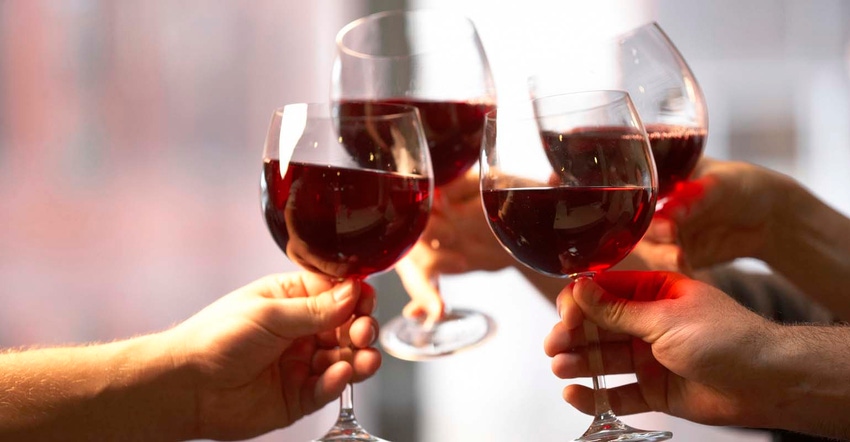
“We don’t win at trade, China, everybody, Japan, Mexico, Vietnam, India, name the country. Anybody we do business with beats us. We don’t win at trade.”
We have all heard this assertion from Donald Trump. The Washington Post in a recent headline asserted “Trump’s trade rhetoric, stuck in a time warp.” The New York Times on July 4, 2016, in an opinion piece said it appears Mr. Trump is committing the same error as Mitt Romney by threatening trade wars. POLITICO cites to critics of Trump who claim “Trump trade plan won’t save jobs.” Let’s examine one agriculture sector and compare facts to Mr. Trump’s rhetoric. You may be surprised.
An agriculture industry with a world class product is wine. In reviewing the Wine Institute’s International Trade Policy, one understands what Donald Trump is arguing. He claims to be for fair trade, not unfair trade. The Wine Institute (WI) echoes Mr. Trump’s arguments. It claims “High tariff rates constitute the single most restrictive barrier to U.S. wine exports.” It claims the EU import tariff is approximately 32% ad valorem equivalent (AVE), Japan is 22.5%, and Switzerland is 90% on red wine and 106% on white.
The U.S. import tariff on imported wine is 1.4% AVE. (This does not seem like a fair deal.)
The WI describes the last 30 years of wine negotiation and claims US import tariff for wine shrank from $0.31.5 (10% ad valorem equivalent) to 6.3 cents per liter or an ad valorem equivalent of 1.4%. It claims “Unfortunately, other countries’ wine tariffs only slightly decreased, if at all.” (Does this sound like Trump?) It claims certain emerging markets’ tariffs are still high with China at 14%, Russia at 20%, Brazil at 27%, Vietnam at 50% and India at 150%.
In fact, “The Wine Institute takes the position that trading partners must first reduce their tariff rates for all wine products…to the current U.S. levels before the U.S. further reduces its rates. This policy is based on decades of international trade negotiations that have materially aided the wine industries of other countries and harmed the U.S. industry.” Sound familiar?
The WI, in a statement which could have come from a Trump speech, declares “This disparity in tariffs has directly resulted in a significant loss of U.S. market share [jobs] and a negative balance of trade for U.S. wineries that continues to increase.”
‘Not very bright’
Mr. Trump often claims trade negotiators for the United States are not very bright or as he says “stupid”. An example: The Wine Institute suggests most distorting wine subsidies are being phased out. However, the U.S. allows EU member states wine subsidies which the Wine Institute says are significantly trade distorting. It claims “Together with high tariffs on U.S. wines, EU and member state wine subsidies ensure the exact opposite of a level playing field.”
Many countries, such as Canada, Finland, Norway and Sweden, maintain monopolies which restrict the import and sale of U.S. wine according to WI. It appears the EU again has out negotiated the U.S. because it requires a certification document for all imported U.S. wine. “The U.S. does not require a similar certification for EU wine.” Apparently, the EU does not allow U.S. producers to use “traditional terms such as ‘chateau’, ‘clos’, ‘tawny,’ and ‘ruby’.” A 2006 wine agreement allows these terms to be used on U.S. wine exported to the EU.
Starting in 2009, the EU declined to extend any further approval.
To drive home Mr. Trump’s point, the Wine Institute declares, “While the EU expects the U.S. to comply with the 2006 wine agreement, the EU has ignored its own obligations.” (See the stupidity?) The Wine Institute continues to be hopeful there can be tariff reductions and regulatory coherence. On its web page it states the “Wine Institute supports U.S. government efforts in seeking a fair outcome that recognizes 1) the existing U.S. and EU wine agreement, 2) the EU trade distorting wine subsidies, 3) the asymmetrical U.S./EU trade balance favoring EU wine exports.” (Dream on.)
It appears Mr. Trump may be onto something regarding our trade deals.
The opinions of the author are not necessarily those of Farm Futures or Penton Agriculture.
About the Author(s)
You May Also Like




